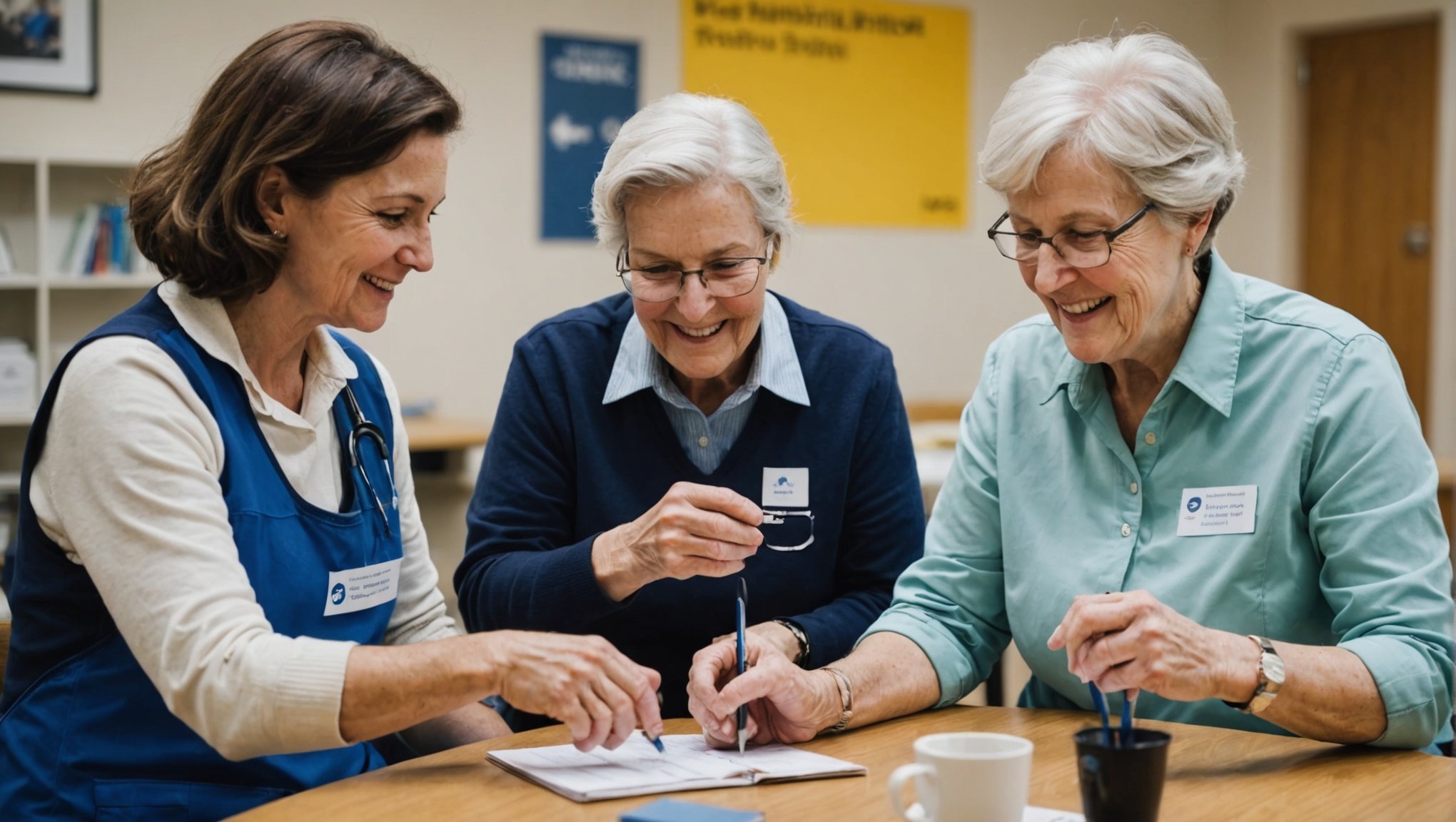Volunteering offers more than just a helping hand; it significantly boosts mental well-being for older adults in the UK. Engaging in meaningful activities not only fosters social connections but also enhances self-esteem and a sense of purpose. This exploration reveals how volunteering serves as a powerful antidote to loneliness and depression, creating a ripple effect of positivity in communities. Discover how dedicating time to others can profoundly impact mental health, opening doors to new friendships and revitalized spirits.
Overview of Volunteering and Mental Well-Being
Volunteering is a selfless act where individuals offer their time and skills without financial gain, often to support various causes or communities. This altruistic behaviour is particularly relevant to mental health, as it provides numerous psychological benefits. For older adults, who may face unique mental well-being challenges such as loneliness and depression, volunteering can be a crucial intervention.
In the same genre : Transforming the Nordic Diet: A Guide to Achieving Peak Health in the UK
Older adults often encounter difficulties like social isolation, which can exacerbate mental health issues. Engaging in volunteering activities promotes social interaction, fostering a sense of belonging and purpose. These interactions can significantly alleviate feelings of loneliness and improve overall mental well-being.
Statistics reveal that older adults who volunteer experience notable mental health improvements. Studies indicate that those who engage in volunteering benefits report lower levels of depression and anxiety. Furthermore, regular participation in volunteer work is linked to enhanced life satisfaction and a more positive outlook on life.
Also read : UK Organic vs. Non-Organic Produce: A Nutritional Showdown!
By integrating volunteering into their lives, older adults not only contribute to their communities but also bolster their mental health. This mutually beneficial relationship underscores the importance of promoting volunteer opportunities tailored to the needs and capabilities of older adults.
Empirical Evidence of Volunteering's Impact
Exploring the mental health benefits of volunteering, particularly for older volunteers, is supported by robust research studies. These studies highlight the positive effects on mental well-being and provide valuable insights into how volunteering can be a powerful tool for enhancing life satisfaction.
Key Studies on Volunteering and Mental Health
Research studies have consistently shown that volunteering can lead to significant improvements in mental health. A notable study published in the Journal of Gerontology found that older adults who volunteered regularly experienced reduced symptoms of depression. This study underscores the importance of regular engagement in volunteer activities for mental health benefits.
Case Studies of Older Adults in Volunteering
Case studies further illustrate the transformative impact of volunteering. For instance, a case study involving a group of older adults volunteering at a local community centre revealed that participants reported a renewed sense of purpose and increased social connectivity. These personal stories highlight the profound changes that volunteering can bring to older individuals' lives.
Statistical Analysis of Volunteering Effects
Statistical analysis supports these findings, with data showing that older volunteers are 30% less likely to experience depression compared to their non-volunteering peers. Such statistics provide compelling evidence of the mental health benefits associated with volunteering, reinforcing the value of promoting volunteer opportunities for older adults.
Volunteering Activities Suitable for Older Adults
Engaging in community service offers older individuals a chance to contribute meaningfully while enhancing their mental well-being. Tailored volunteer opportunities are essential to ensure that older adults can participate effectively and enjoyably.
Examples of Activities
Older volunteers can partake in a variety of activities that cater to their interests and abilities. These include tutoring children, mentoring young adults, participating in community gardening projects, or assisting at local libraries. Such roles not only utilize their skills but also provide a sense of fulfilment and purpose.
Benefits of Community Service
Participating in community service projects allows older individuals to remain active and socially engaged. It fosters a sense of belonging and can significantly reduce feelings of isolation. Moreover, these activities often lead to the development of new friendships and networks, enriching the volunteers' social lives.
Matching Interests and Skills
It is crucial to match volunteers' interests and skills with suitable roles. This alignment ensures that the experience is rewarding and beneficial for both the individual and the community. By focusing on areas they are passionate about, older adults can maximize their contribution and derive greater satisfaction from their volunteer work.
Programs and Organizations Supporting Older Volunteers
Numerous volunteer programs and UK organizations are dedicated to providing support for older adults interested in volunteering. These initiatives not only facilitate meaningful engagement but also enhance the well-being of participants.
Notable Volunteer Organizations in the UK
Several organizations stand out for their commitment to supporting older volunteers. Age UK is a prominent charity offering a range of volunteering opportunities tailored to older adults, focusing on roles that match their skills and interests. Similarly, the Royal Voluntary Service provides various programs designed to engage older individuals in community service, promoting social interaction and mental health benefits.
Local Community Initiatives
Local community initiatives play a crucial role in encouraging older adults to volunteer. Many towns and cities have established community centres and projects that welcome older volunteers. These initiatives often involve activities like organizing events, providing companionship, or assisting in local schools, fostering a sense of community and purpose.
Resources for Finding Volunteer Opportunities
For those seeking volunteer opportunities, numerous resources and platforms are available. Websites such as Do-it.org and Volunteer Scotland offer comprehensive databases of volunteer roles across the UK, allowing older adults to find positions that align with their interests and abilities.
Challenges and Solutions for Older Volunteers
Volunteering as an older adult presents unique volunteer challenges that require thoughtful solutions. Common obstacles include physical limitations, transportation issues, and adapting to new environments or technologies. These barriers can deter older adults from engaging in meaningful volunteer work, impacting their mental health and sense of purpose.
To address these challenges, support solutions must be implemented. Providing flexible volunteer schedules can accommodate physical needs, while offering transportation assistance ensures accessibility. Training programs can ease the transition into new roles, especially those involving technology, by building confidence and competence.
Community support plays a crucial role in facilitating volunteering for older adults. Local organizations can offer tailored opportunities that match the skills and interests of older volunteers, promoting a sense of belonging and purpose. By fostering inclusive environments, communities can help older individuals overcome barriers and engage actively in volunteer work.
Moreover, creating peer support networks among volunteers can enhance social connectivity and provide emotional encouragement. This approach not only addresses specific challenges but also enriches the overall volunteering experience, ultimately contributing to improved mental health and well-being for older adults.











